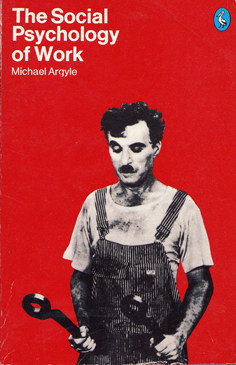The Australian Financial Review on 24 March 2010 includes an article (only available through subscription or hard copy purchase) that states that the “tangle of state laws hampers compliance” by business on the issue of workplace bullying. Harvard Business Review reports on how to cut through the distractions and attend to a root cause of workplace bullying. Continue reading “Workplace bullying needs harmony and good managers”
Category: wellness
OHS awards consider work/life balance but not vice versa
On 15 March 2010, the Australian Government congratulated the winners of, and participants in, the 2009–10 National Work–Life Balance Awards.
According to a media release from the Department of Education, Employment and Workplace Relations:
“The Awards…. recognise family friendly practices like flexible working hours, options for working from home, paid parental leave, job sharing, onsite carer’s facilities and study assistance.”
“No direct OHS performance indicators were included in the judging criteria for the 2009-10 National Work-LIfe Balance Awards.” Continue reading “OHS awards consider work/life balance but not vice versa”
Does being fat equate to being unsafe at work?
There are several initiatives throughout the world under the banner of workplace health that have little relation to work. They are public health initiatives administered through the workplace with, often, a cursory reference to the health benefits also having a productivity benefit.
 So is a fat worker less safe than a thin worker? Such a general question cannot be answered but it illustrates an assumption that is underpinning many of the workplace health initiatives. There is little doubt that workers with chronic health conditions take more leave but, in most circumstances, this leave is already accounted for in the business plan.
So is a fat worker less safe than a thin worker? Such a general question cannot be answered but it illustrates an assumption that is underpinning many of the workplace health initiatives. There is little doubt that workers with chronic health conditions take more leave but, in most circumstances, this leave is already accounted for in the business plan.
Sick leave is estimated at a certain level for all workers across a workplace and, sometimes, a nation. There is an entitlement for a certain amount of sick leave for all workers, fat and thin, “healthy” or “unhealthy”. It certainly does not mean that the entitlement will be taken every year but the capacity is there and businesses accommodate this in their planning and costs.
Remove this generic entitlement so that only working hours remain. Is a fat worker less productive than a thin worker? Is a worker without any ailments more productive than a person with a chronic ailment? Is a smoker more productive than a non-smoker or a diabetic or a paraplegic? Continue reading “Does being fat equate to being unsafe at work?”
When looking to understand psychosocial issues, ask your grandparents
 In February 2010, the New York Times ran an article about depression by Jonah Lehrer. The same article appeared in some of Australia’s weekend newspapers in early March. Lehrer looks at the issue of depression and considers whether there is a potential upside to the disorder by looking back as far as Charles Darwin for expressions of depression. He makes a challenging statement:
In February 2010, the New York Times ran an article about depression by Jonah Lehrer. The same article appeared in some of Australia’s weekend newspapers in early March. Lehrer looks at the issue of depression and considers whether there is a potential upside to the disorder by looking back as far as Charles Darwin for expressions of depression. He makes a challenging statement:
“…that depression has a secret purpose and our medical interventions are making a bad situation even worse. Like a fever that helps the immune system fight off infection — increased body temperature sends white blood cells into overdrive — depression might be an unpleasant yet adaptive response to affliction.”
Lehrer goes on to make a case for depression being a possible source of creativity.
He refers extensively to the evolutionary psychology research of Andy Thomson and Paul Andrews who acknowledge that
“… depression is a vast continuum, a catch-all term for a spectrum of symptoms.”
Perhaps, particularly in the relatively recent consideration of depression in workplaces, we are being too narrow and too specific. Perhaps the case for workplace depression being made by some of the “depression sellers” is too targeted and we need to remind ourselves of the sociology of work, a perspective that seems to have gone out of fashion. Continue reading “When looking to understand psychosocial issues, ask your grandparents”
Workplace bullying data from Denmark
In occupational health and safety (OHS) and other workplace research, Scandinavia is often quoted. The application of research findings to other nations is of dubious value but often Scandinavian research provides clues to potential OHS hazards or control options.
In February 2010, the European Working Conditions Observatory published online a research report into workplace bullying. The report says
“Investigating the impact of bullying on psychological stress reactions according to the Impact of Event Scale, the NFA study finds that negative acts which potentially isolate the individual at the workplace, acts directed towards the person and unreasonable workloads induce most psychological stress.” Continue reading “Workplace bullying data from Denmark”
Discussion paper on Queensland workers compensation released
 The Queensland Government has released a public discussion paper into its workers’ compensation scheme. Obviously this was part of the reason for the political argy-bargy in the State in late February 2010 over a report by Deloitte.
The Queensland Government has released a public discussion paper into its workers’ compensation scheme. Obviously this was part of the reason for the political argy-bargy in the State in late February 2010 over a report by Deloitte.
A major question posed in the discussion paper concerns the application of Whole Person Impairment (WPI) or Work-Related Impairment (WRI) as the assessment process. Currently only Queensland applies WRI and so the submissions to this discussion process may be quite useful in anticipation of the any review into the national workers’ compensation arrangements. Continue reading “Discussion paper on Queensland workers compensation released”
Is overwork part of the Australian Government’s project management difficulties?
On the Insiders television program on 21 February 2010, host Barrie Cassidy closed a long interview with the Communications Minister Stephen Conroy but asking about the workload of public servants in supporting government programs. The video is available on-line and the comments are at the 11 minute mark.
Conroy says that the “cracking pace” the Prime Minister, Kevin Rudd, established from the start of his government has continues. Rudd continues to expect high performance from his Ministers, staff and public servants. Conroy talks about the change that has been demanded of the public service and that this has generated more workload. He forecasts that the workload may ease if the Government achieves a second term of office.
Cassidy makes the link between the “pushing people too hard” and the failure of Government schemes such as the insulation scheme that was cancelled by the Environment Minister, Peter Garrett on 19 February 2010. Continue reading “Is overwork part of the Australian Government’s project management difficulties?”
